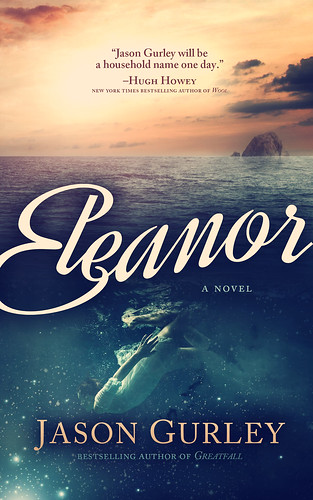Back to ... I never really expected to like Longmire. But we were in the middle of seasons with not much to watch and it popped up on our radar. The first show hooked me: the characters, the writing, and that jaw-dropping scenery. I mean, what's not to love about a stoic male hero who looks great in a cowboy hat and boots? Which Robert Taylor does! (What is it with these actors from Down Under ... Simon Baker?!?) And Longmire is a widower. His wife's ashes reside in a tin box labeled Tea in his kitchen. Her body may have departed from this world, but Martha's memory informs every aspect of who Walt Longmire is and who he remains to become. Did I mention that he refuses to own a cellphone (be still my Luddite heart) and picks up stray beer cans (the treehugger in me beams) because he hates to see them mucking up his beloved Absaroka County?
Okay, not enough to love in one show? Then add Vic Moretti (played brilliantly by Katee Sackhoff), deputy to Longmire's sheriff. Her hair is always a mess and her mouth is always sharp. In other words she's real. She doesn't go around chasing bad guys and girls in heels with a blow out.
And then there's deputy Branch Connally, challenging his boss in the upcoming election. He's the prissy one. And Ferg, the young deputy who's trying to find himself, his courage, his sense of purpose.
There are three more elements I love about this show.
Yes, it's a law and order/crime show, but the crimes are not retreads. Each one tugs at your heart and many leave you with a good look at what's wrong with this world. There is little stark us vs. them, cliched dichotomy, right/wrong here. The misguided, wrong-headed, and wrong-hearted wreak havoc on those around them with a reality that is often painful to watch.
Absaroka County borders a Cheyenne reservation. The distrust between the two nations is portrayed with both a simplicity and complexity that feels tense, raw, harsh, and palpable.
The show really shines when it enters the territory of magical realism and brings Native American spirituality and culture into the episodes—Contrary Clowns, Dog Soldiers, Eagle Feathers, and White Warriors. Sigh. I'm so thrilled Netflix picked it up for its fourth season ... which was released on September 10th.
We're currently binge watching Season Four after re-running the first three.














